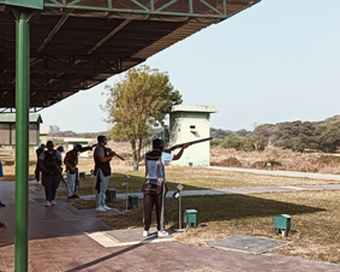 PM Modi visit USA
PM Modi visit USA Only the mirror in my washroom and phone gallery see the crazy me : Sara Khan
Only the mirror in my washroom and phone gallery see the crazy me : Sara Khan Karnataka rain fury: Photos of flooded streets, uprooted trees
Karnataka rain fury: Photos of flooded streets, uprooted trees Cannes 2022: Deepika Padukone stuns at the French Riviera in Sabyasachi outfit
Cannes 2022: Deepika Padukone stuns at the French Riviera in Sabyasachi outfit Ranbir Kapoor And Alia Bhatt's Wedding Pics - Sealed With A Kiss
Ranbir Kapoor And Alia Bhatt's Wedding Pics - Sealed With A Kiss Oscars 2022: Every Academy Award Winner
Oscars 2022: Every Academy Award Winner Shane Warne (1969-2022): Australian cricket legend's life in pictures
Shane Warne (1969-2022): Australian cricket legend's life in pictures Photos: What Russia's invasion of Ukraine looks like on the ground
Photos: What Russia's invasion of Ukraine looks like on the ground Lata Mangeshkar (1929-2022): A pictorial tribute to the 'Nightingale of India'
Lata Mangeshkar (1929-2022): A pictorial tribute to the 'Nightingale of India' PM Modi unveils 216-feet tall Statue of Equality in Hyderabad (PHOTOS)
PM Modi unveils 216-feet tall Statue of Equality in Hyderabad (PHOTOS)India Open Competition in Shotgun, organised by the National Rifle Association of India (N
- Hockey India names Amir Ali-led 20-man team for Junior Asia Cup
- Harmanpreet Singh named FIH Player of the Year, PR Sreejesh gets best goalkeeper award
- World Boxing medallist Gaurav Bidhuri to flag off 'Delhi Against Drugs' movement on Nov 17
- U23 World Wrestling Championship: Chirag Chikkara wins gold as India end campaign with nine medals
- FIFA president Infantino confirms at least 9 African teams for the 2026 World Cup
NASA delays balloon launch due to poor weather Last Updated : 10 Apr 2017 10:43:42 AM IST 
File Photo: Super Pressure balloon (SPB)
NASA has postponed the third launch attempt of its super pressure balloon (SPB) from Wanaka, New Zealand, on Monday due to poor weather at ground and surface levels.
"Wind speeds were just slightly above those required for launch, and with the uncertainty for precipitation in the area, the team made the decision to postpone for the day," NASA scientists said in a blog post.
No launch attempt is scheduled for Tuesday.
NASA will announce by 2 p.m., on Tuesday, whether or not Wednesday's weather will support a launch attempt.
The first attempt to launch the balloon -- designed to carry a pioneering telescope to detect ultra-high-energy cosmic rays from near space -- was cancelled due to unacceptable stratospheric wind conditions.
The second attempt was cancelled due to a mechanical issue with a crane used for launch operations, which has since been resolved.
The purpose of the flight is to test and validate the SPB technology with the goal of long-duration flight at mid-latitudes.
In addition, the University of Chicago's Extreme Universe Space Observatory on a Super Pressure Balloon (EUSO-SPB) is a mission of opportunity flying on the 2017 SPB test flight.
EUSO-SPB is designed to detect high-energy cosmic rays originating from outside our galaxy as they penetrate the Earth's atmosphere.
As these high-energy particles enter the atmosphere, they interact with nitrogen molecules in the air and create a UV fluorescence light.
EUSO-SPB will be looking downward at a broad swathe of the Earth's atmosphere to detect the UV fluorescence from these deep space cosmic rays coming in from above.IANS For Latest Updates Please-
Join us on
Follow us on








172.31.16.186







